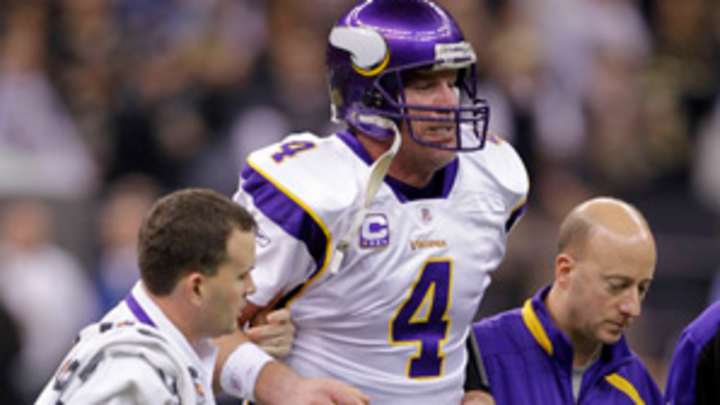Co-opted military words like 'bounty' have no place in sports


What first struck me about the New Orleans Saints bounty system, in which players were offered cash rewards for injuring opponents, was less the depravity of the practice -- by many accounts leaguewide and longstanding -- than it was the word bounty, yet another buzzword football co-opted from the military and law enforcement.
Those two professions -- soldier and policeman -- are married in the NFL's logo, essentially a flag on a shield, and the language of cops and soldiers is invoked frequently in football, as when Herm Edwards spoke on ESPN Tuesday of the Saints subverting the league's "chain of command" and ultimately bringing dishonor to "The Shield."
Edwards was raised near Fort Ord in Monterey, Calif., the son of a soldier, and has a degree in criminal justice. He comes by this language naturally and respectfully. But most who talk this way don't. And the trouble is, most talk this way, or so it increasingly seems in interviews and analysis, when what used to be the NFL is now referred to as the "National Football League," doubling the syllables and thus the gravity of it all. (In the same way, cops never nab crooks -- they apprehend perpetrators.)
When the NFL is not called the "National Football League" it is likely to be called "The Shield," which was previously just the title of an FX series about cops in Los Angeles, the one market the National Football League can't crack, despite all the flyovers, Faith Hill anthems, officially licensed camouflage uniforms and false rumors that Peyton Hillis contemplated retiring from the Cleveland Browns to join the CIA -- all of which suggest that the National Football League pretends to have a higher mission than mere entertainment or competition.
It is a sovereign nation, with its own head of state (the commissioner), presidential seal (The Shield), national holiday (Super Bowl) and annual State of the League address (the annual State of the League address). "Football Night in America" is a typographical error. "Football Night is America," you are meant to believe. And this is where the word bounty comes in.
"Bounty" once meant a payment to a soldier returning from service (duly rewarded with cash or a parcel of land), or to a sailor as incentive for enlisting. Bounties, of course, are also placed on the heads of criminals evading justice, which is not quite the same as a scrambling quarterback. The fact that you wear a shield and are awarded a bounty does not necessarily make you a soldier or a cop -- or even Dog the Bounty Hunter, rousting a meth-addled bail jumper from a park bench.
Saints linebacker Jonathan Vilma, in allegedly offering $10,000 to any teammate who injured Vikings quarterback Brett Favre in the NFC Championship Game in 2010, was not doing a service to his nation, no matter what you think of Favre, nor was the bounty sought to keep the streets safe from a fugitive criminal.
You'd be forgiven for thinking otherwise when the language of the sport -- among fans, media, players and coaches -- still suggests these are "warriors" doing "battle" in the "trenches." Why, in these circumstances, would a bounty be out of place?
Football as a metaphor for war is hardly a modern problem. It was already an ancient comparison when George Carlin was doing his bit about football going on half a century ago: "In football the object is for the quarterback, also known as the field general, to be on target with his aerial assault, riddling the defense by hitting his receivers with deadly accuracy in spite of the blitz, even if he has to use the shotgun. With short bullet passes and long bombs, he marches his troops into enemy territory, balancing this aerial assault with a sustained ground attack that punches holes in the forward wall of the enemy's defensive line ..."
But if football as a stand-in for war is very old -- and so is the game's bounty system -- why hasn't the geriatric conceit died yet? And why won't it ever? It was supposed to be obsolete by now. Remember, when American troops went to war in Iraq a decade ago, and everyone vowed not to call athletes "warriors" anymore, and not to use the language of war to describe ball games?
At this point, neither do I.
